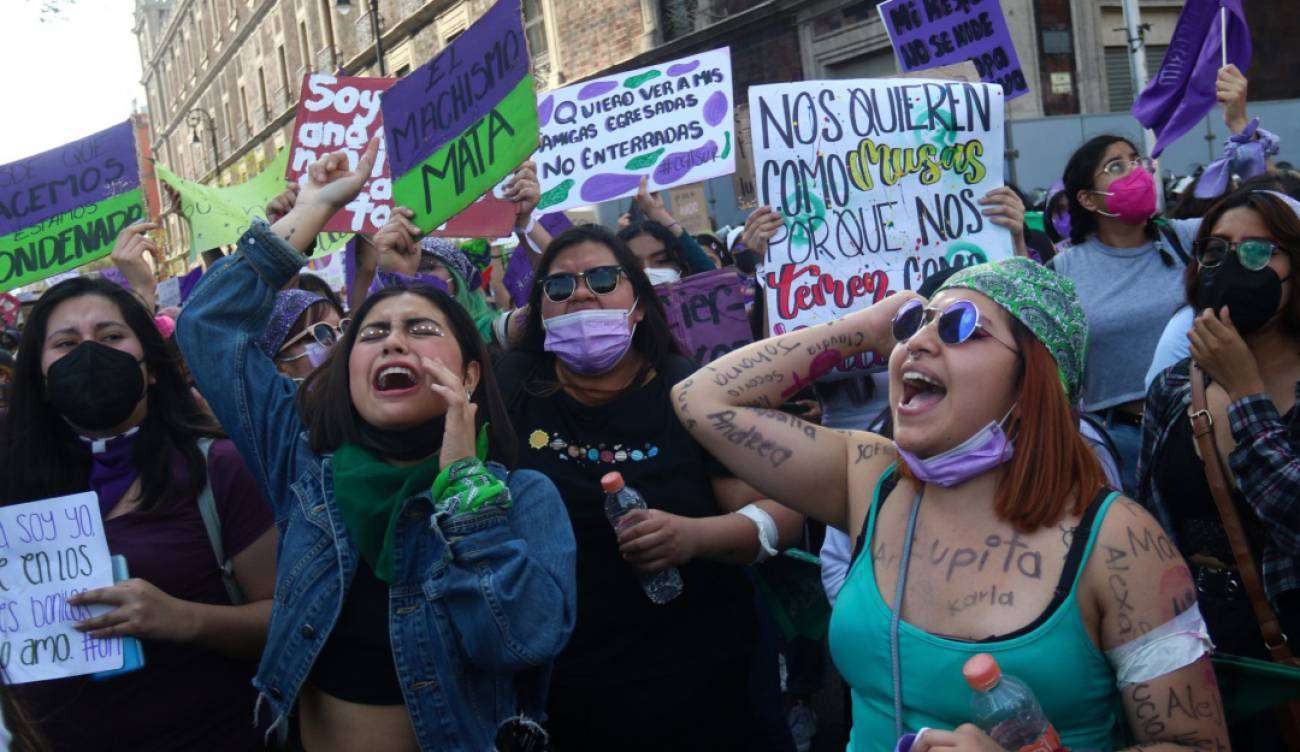Thousands of women have taken to the streets this March 8 to demand an end to discrimination and femicides, among many other demands.
The reasons for mobilization on this International Women’s Day are numerous: the restrictions imposed in Afghanistan since the return to power of the Taliban, the repression of protests in Iran over the death of Mahsa Amini, the questioning of the right to abortion in the United States United States or the consequences of the war in Ukraine for women.
Women are the first victims of wars and are underrepresented at negotiating tables, official representatives to the United Nations Security Council said on Tuesday.
Under the slogans “Not one more assassinated!” and “Against sexist violence and precarious work!”, feminist groups called for marches in the main cities of Mexico, where in 2022 there were 969 femicides, according to official figures.
In Colombia, women’s organizations called for demonstrations in Bogotá, Medellín, Cali and other cities to demand action against the increase in femicides, which went from 182 in 2020 to 614 last year.
In Brazil there was a “great feminist batucada” in Sao Paulo and Rio de Janeiro, in which the “cuts in women’s protection policies” and the “growth of machismo and misogyny” during the term of President Jair were denounced. Bolsonaro (2019-2022).
Events for March 8 are being held in numerous cities, from Madrid, which usually brings together a gigantic purple tide, to Sao Paulo, including Kabul, where around twenty women demonstrated in the streets. “The time has come for the UN to take actions that are decisive for the fate of the people,” declared one of the protesters in the capital.
Since their return to power in August 2021, the Taliban have multiplied the restrictions for women, banned from university and secondary education.
“Afghanistan under the rule of the Taliban continues to be the most repressive country in the world with regard to women’s rights,” denounced Roza Otunbayeva, director of the UN assistance mission.
In Pakistan, thousands of women took to the streets despite attempts by city authorities to stop the marches.
Globally, “the gains made in decades are evaporating before our eyes,” UN Secretary General Antonio Guterres warned on Monday. “At the current rate, UN Women estimates that it will take 300 years” to achieve equality between men and women, he added.
Another theme of global protests is the defense of the right to abortion, weakened in the United States by the decision of the Supreme Court to revoke the 1973 ruling that guaranteed it at the federal level. In Europe, that right was also weakened in Hungary and Poland.















